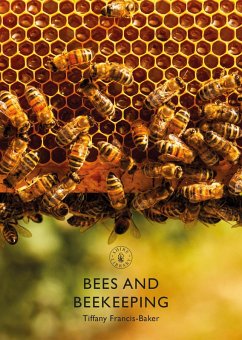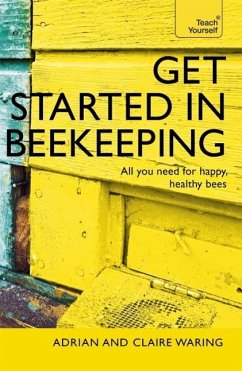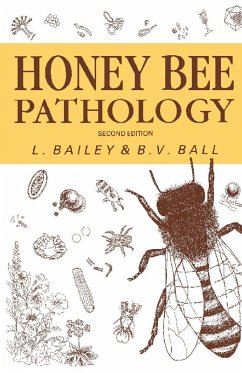
Managing Bee Health: A Practical Guide for Beekeepers (eBook, PDF)
A Practical Guide for Beekeepers

PAYBACK Punkte
0 °P sammeln!
The crucial role that bees play in the Earth''s ecosystem is well known. Over the last decades a dramatic decrease in bee health has been seen on a global scale. This deterioration is seen on a global scale in both domestic and wild bees, precipitating a wider ecological impact. Veterinarians, animal scientists and bee husbandry specialists increasingly need to be provided with the skills to investigate and understand the situation; Managing Bee Health aims to provide an overview of the health of bees at individual and hive level, covering common and emerging diseases and preventive measures. ...
The crucial role that bees play in the Earth''s ecosystem is well known. Over the last decades a dramatic decrease in bee health has been seen on a global scale. This deterioration is seen on a global scale in both domestic and wild bees, precipitating a wider ecological impact. Veterinarians, animal scientists and bee husbandry specialists increasingly need to be provided with the skills to investigate and understand the situation; Managing Bee Health aims to provide an overview of the health of bees at individual and hive level, covering common and emerging diseases and preventive measures. Beginning with an overall analysis of bee anatomy and physiology, then deals with the main diseases and pathogens of bees and colonies and how to treat and control their clinical impact. Providing insights on bee nutrition, insect interaction with flowering plants, and presenting helpful points of contact to report suspected conditions, such as the World Organisation for Animal Health (OIE). The book looks at the global pathogen status of bees, including not only the honeybee (Apis mellifera) but also other members of the Apis family.Managing Bee Health is a most useful guide for beekeepers, advisors, veterinarians and beekeeping enthusiasts, showing practical ways to understand bee health, treat sick or compromised hives and enhance the wellbeing and welfare of these wonderful creatures. John Carr B.V.Sc., Ph.D., D.P.M., DiplE.C.P.H.M., M.R.C.V.S, is a specialised population medicine veterinary surgeon. He has taught production medicine and bee medicine at several universities around the world. John also runs a consultancy practice with clients in the Americas, Europe, Asia, Australia and Africa.
Dieser Download kann aus rechtlichen Gründen nur mit Rechnungsadresse in A, B, BG, CY, CZ, D, DK, EW, E, FIN, F, GR, HR, H, IRL, I, LT, L, LR, M, NL, PL, P, R, S, SLO, SK ausgeliefert werden.













